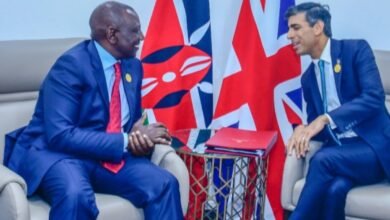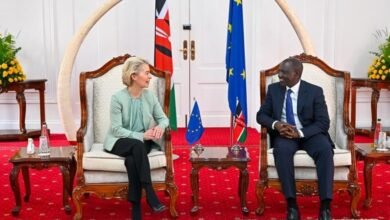
Kenya has jumped six positions up from 12 back in 2013 with a Ksh.4.74 trillion Gross Domestic Product (GDP) to Ksh.11 trillion, positioning itself as the sixth richest economy in Africa.
This is according to President Uhuru Kenyatta when he made his State of The Nation Address on Tuesday at the Parliament Building, Nairobi.
“In 2013, Kenya was Africa’s 12th wealthiest nation with Ksh.4.74 trillion GDP. In 8 yrs, my administration has pushed the GDP to Ksh.11 trillion and Kenya is currently ranked 6th wealthiest nation on the continent.
According to President Kenyatta, the GDP in 2013 was a result of the combined efforts of the four governments that preceded his tenure in office. Which had accumulated over 123 years including colonial government.
“We have managed to multiply what was bequeathed to us, in just 8 years my administration has multiplied the GDP by a factor of 2+,” said the President.
The eight-year strides in economic development have been achieved despite the harsh cost of living among Kenyans that has been fueled by the high cost of fuel and food.
For example, when President Kenyatta assumed power in 2013, a litre of petrol was retailing at Ksh.Ksh.105.76 against the current price Ksh.129.72.
Africa’s richest economies
Many of the world’s poorest nations are in Africa most of which are unstable, and poverty is widespread.
The following are the top eight richest economies in Africa;
1. Nigeria – Ksh.57.83 trillion.
2. Egypt – Ksh.44.36 trillion.
3. South Africa – Ksh.37.07 trillion.
4. Algeria – Ksh.17.04 trillion.
5. Morocco – Ksh.13.95 trillion.
6. Kenya – Ksh.11.9 trillion.
7. Ethiopia – Ksh.10.57 trillion.
8. Ghana – Ksh.2.7 trillion.
The largest components of the African economy are agriculture, trade, and natural resources, and the African economy is expected to reach a GDP of $29 trillion by 2050.
President Kenyatta in his address rooted for the Information Communication Authority (ICT) as country’s economic backbone in the coming years.
Kenya is a regional leader in terms of broadband connectivity, general ICT infrastructure, value added services, mobile money, and mobile banking services.
The country’s ICT sector is set to account for up to 8 percent of the country’s GDP through IT-enabled services (ITES) and create more than quarter of a million jobs by the end of 2021.
Internet access has continued to spur economic growth which contributed to the government’s development of the Digital Economy Blueprint, a framework to improve Kenya’s ability to leapfrog economic growth in the region.
In his Budget statement for the Financial Year 2021/2022, Treasury Cabinet Secretary Ukur Yatani set aside Ksh.23.6 billion to fund various initiatives in the ICT sector.





